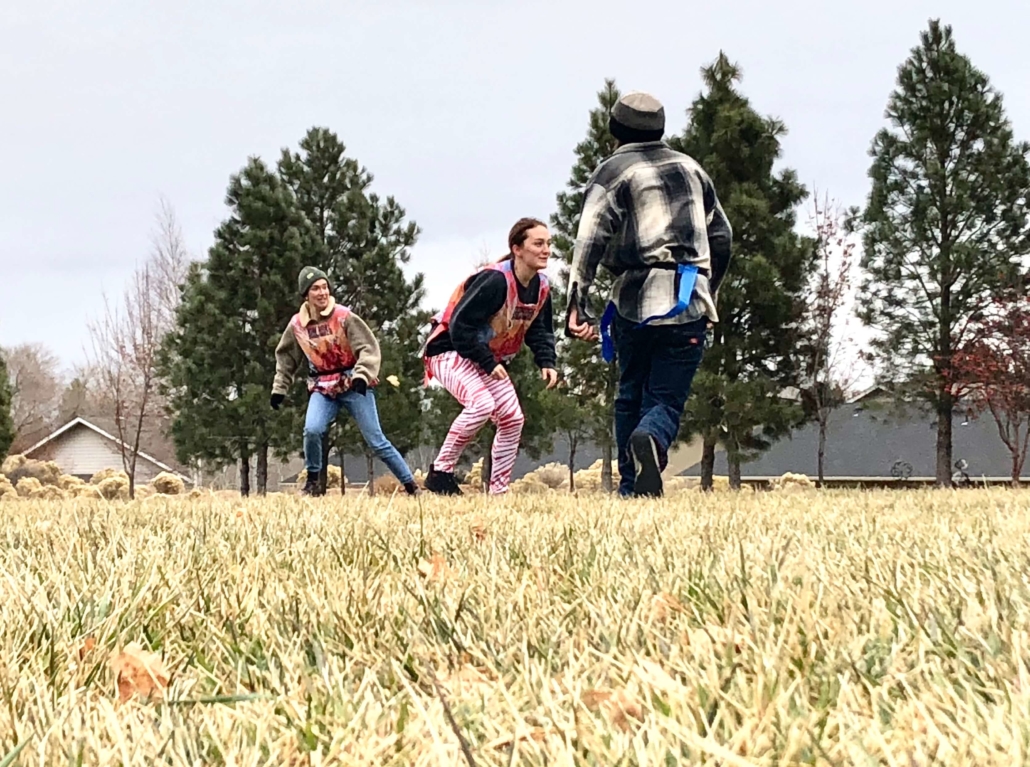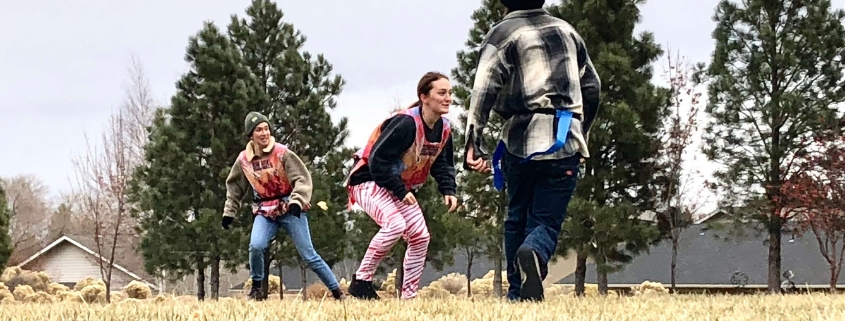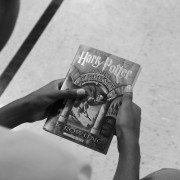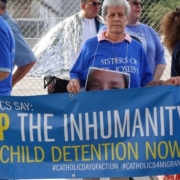Wanting For, Not From: Reflections on Wholeness
BY SHEA KELLY-BUCKLEY | January 30, 2019
“Wholeness is the goal, but wholeness does not mean perfection.
It means embracing brokenness as an integral part of life.”
[Parker Palmer, Quaker elder, educator, and activist]
As I serve at a youth & family center in Bend, Oregon, the staff and I often encounter what feels like brokenness as we accompany young people who are experiencing homelessness or housing insecurity. These youth, who may be seeking a welcoming space, fleeing violence and abuse, or participating in a transitional living program, exhibit incredible resilience even as they carry stories of great trauma and loss. They find themselves in transition and are continually asked to weather unthinkable storms: the loss of a parent or sibling, substance abuse disorders, mental health recovery, all piled on top of the uncertainties and upheavals of adolescence. Brokenness, then, is a near constant—woven throughout and contained within all of the laughter and joy and grief and anger that make up a day.
When I take Parker Palmer’s wisdom seriously, I find myself able to embrace that same brokenness as an integral part of life and as an integral part of the youth I am privileged to know. With this lens, I am better able to notice moments of embodied wholeness. I stand in awe of the young woman who spends her small paycheck on Christmas gifts for other youth in the program. I learn from the young man who channels grief into art and gratitude and who remains a voice of reason amidst the greatest transition of his life. I am energized by the one who knows how to laugh and whose joy is contagious and by the one who bakes a better pie than anyone I’ve ever known. I consider one incredible young man who has long been his brother’s keeper and who loves him fiercely to be a spiritual teacher. I find that wholeness is embodied by young people who are brave and resilient, honest and vulnerable, and who continue to grow and persist even in the face of more than I could handle. They are whole even as they are broken.

The author playing flag football at her service site.
I’m drawn to this notion of wholeness because it suggests that to honor wholeness does not require us to ignore brokenness. Rather, it asks us to give brokenness the time of day, so that when we bear witness to it and feel it deeply, we might be compelled to act. For insight into what that action can look like, I turn to the wisdom of Fr. Greg Boyle, S.J. Fr. Boyle offers us an image of a God who doesn’t want anything from us, but instead wants only for us. It’s hard to deny the magnetism of that description. A God that wants for us gathers us up in a compassionate embrace that acknowledges our brokenness, our pain, our gifts, and our capacity for good. Rather than asking more of us, God turns toward us from a place of abundance rather than one of scarcity, encountering us and deeming us already whole. That kind of God says that we are enough as we are—brokenness and all.
Aiming to live into this notion of the divine by wanting for the youth I encounter rather than from them is daily work, often full of missteps and redirection. I catch myself asking for things to be done—forms to be signed, beds to be made, dishes to be put away—rather than creating the space for the young people to do them. I notice myself wishing that they would learn to plan ahead rather than supporting them in developing that skill so that they might carry it with them beyond our program. In large part, my daily work is that of remembering that wholeness does not demand perfection from the youth I accompany, nor does it demand it from me.
Backed by the idea of an incarnational faith—one in which our greatest teacher was as fully human and broken as we are right now—I am continually learning to acknowledge my own breaking in the face of brokenness, affirm my own wholeness, and want only for myself rather than from myself. With a little bit of grace, I will continue to grow in my ability to do these things, and I will continue to learn to do the same for the youth I am privileged to serve. To embrace brokenness as I affirm wholeness, and to want only for and never from are truly acts of faith in which justice takes form and becomes incarnate.
#JVReflects explores the intersection of faith and justice from the perspective of JESUIT VOLUNTEERS serving as long-term volunteers both domestically and internationally with Jesuit Volunteer Corps and Jesuit Volunteer Corps Northwest. Reflections specifically focus on the cornerstone values of the Jesuit volunteer experience: spirituality, simple living, community, and social justice. JVC Northwest is currently accepting applications for the ‘19-20 service year. Start your JV journey here today!
Shea Kelly-Buckley is a 2018-2019 member of Jesuit Volunteer Corps Northwest. She serves as the community health street outreach coordinator at Cascade Youth & Family Center / J Bar J Youth Services in Bend, Oregon. She graduated from the University of Notre Dame and is from Reading, Pennsylvania.









Wow you are a great writer and more importantly value reflection and integration seriously. I am a friend of your mom. Way back from ND. You are an amazing adult and seem to have a heart that mirrors your parents. Good luck. Jo Giarrante
When I get lost in a world that quantifies and qualifies, I will reread this and remember that I can find what is sacred in the present moment just as it is.
Your entry guides us to see what is holy right in front of our eyes. You help us remember that we, too, are whole just the way we are.
Many thanks, Shea,
and much love,
Powerful, profound and perfectly written! Proud of you and the woman you are becoming and the lives you are impacting.
Mary Shea, What a beautiful and profound reflection. Your work and love towards those you are encountering this year is a gift. I loved reading this reflection!
Nice and inspiring. Thanks. Our God is kind and good to all.